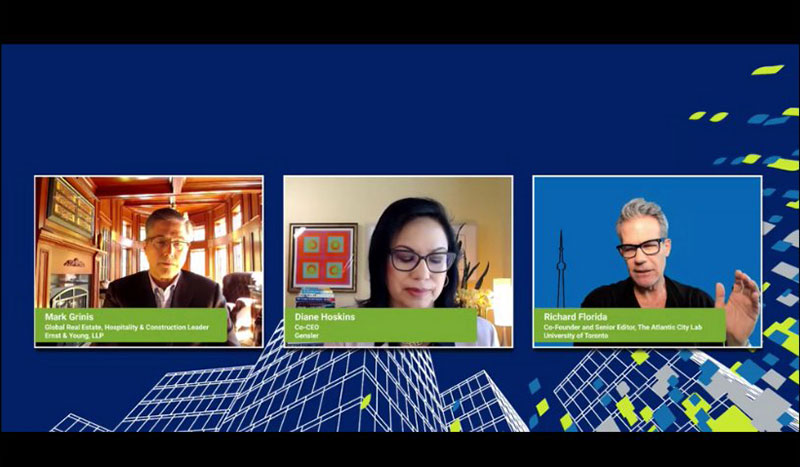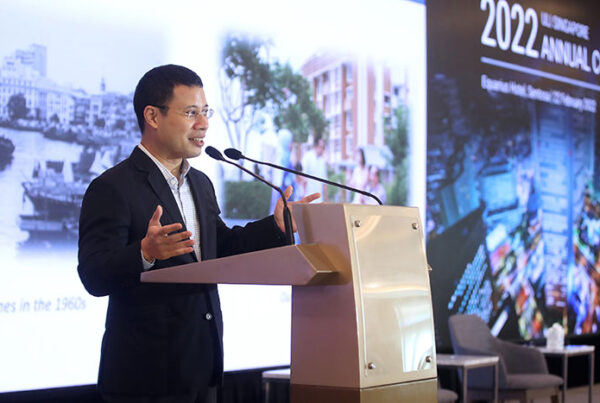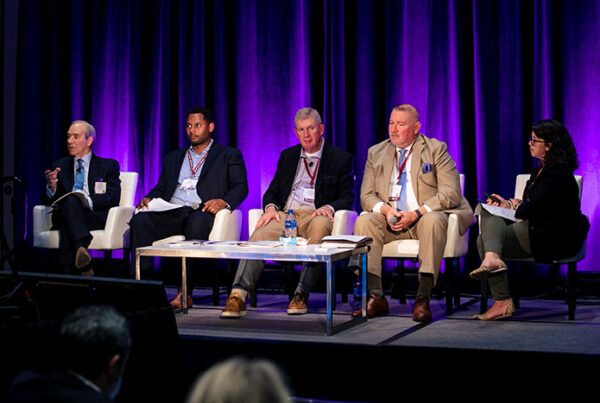Just as many cities have survived over millennia, cities and their workplaces will survive—and those workplaces likely will continue to be focused on the benefits of productivity and collaboration. But technology and necessity have enabled models of work that previously had been given little consideration to thrive over the past year.
A 2021 ULI Virtual Spring Meeting general session titled “A Post-Pandemic Workforce and Its Impact on the Workplace” sparked a wide-ranging conversation among Diane Hoskins, Gensler’s co-CEO and a member of ULI’s global executive board; moderator Richard Florida, professor and head of the Martin Prosperity Institute at the Rotman School of Management at the University of Toronto; and Mark Grinis, leader, global real estate, hospitality, and construction at EY.
Florida said that the “the notion of an urban exodus is looking more like a myth,” since cities have survived plagues, pandemics, and even wars in the past. He said the global pandemic has largely been “an accelerator and not a disrupter.”
Grinis said, “We’ve tested things that we had never done before, and we’ve challenged business norms. . . . That’s the real transformative thing.” Telemedicine and virtual business presentations were never considered the best option in the past, he said, but they may be the norm going forward.
Hoskins acknowledged the passing of M. Arthur “Art” Gensler, Jr., namesake and founder of the firm, who passed away on May 10t at age 85. She said, “I know a lot of people at ULI knew Art. He was an enthusiastic believer in cities, and in many ways his legacy as one of the pioneers of corporate design was how we design modern workplaces. I know he would have loved to hear this conversation today.”
Hoskins continued, saying that when Gensler is hired now to design a new corporate campus, the design team often is working directly with the CEO, because the impact on corporate culture is so powerful.
“At the same time, we’ve trusted people to work from home for 14 to 15 months; we need to keep trusting them,” she said. “The biggest change is who is involved in decisions and what’s the basis of those decisions,” including surveys and pilot programs.
“This polarizing debate about work from home versus work from the office, it will be solved over time,” Hoskins said. “What the data shows us is that 15 to 20 percent of people want to be in the office 100 percent of the time, and 10 to 15 percent of people want to work from home 100 percent of the time. The rest want flexibility or what we’re calling the hybrid office. But hybrid is unique for every [organization].”
Florida said that he spent part of the last year in Miami Beach, saying, “It’s not just about low taxes and good weather, it’s about flexibility.” He said that rents and prices in South Florida have also risen dramatically.
Grinis noted that roughly 30 million Americans move every year, with the main reason being to look for a better place to live. “The base of the bigger cities is so large and so pronounced that it will without question endure,” he said. “The better question is will it grow as rapidly as somewhere else? Smaller cities with double-digit growth rates do draw headlines, but understanding those demographic shifts is imperative.”
This session will be available for rebroadcast at 7:45 p.m. EDT for 2021 ULI Virtual Spring Meeting attendees.



